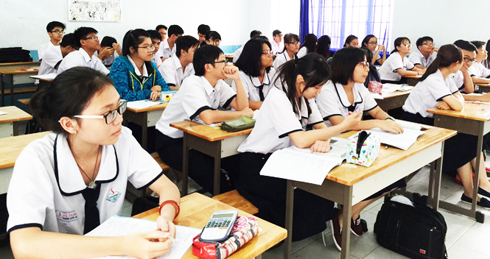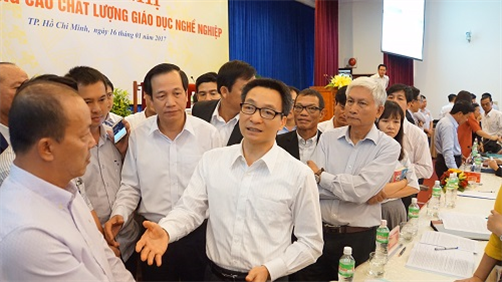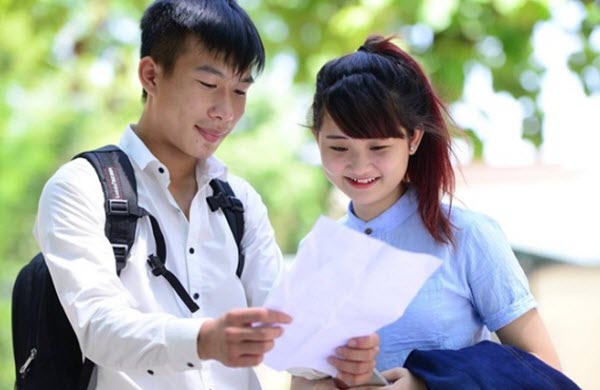On February 12, 2020, the Department of Health Environment Management issued Official Dispatch 180/MT-VP 2020 regarding comments on the contents for nCoV epidemic prevention in schools.
>>> See more: Are primary school teachers classified by qualification for salary?

Illustrative image
 Important policies applicable to all teachers from February 12, 2020
Important policies applicable to all teachers from February 12, 2020
Official Dispatch specifies the steps to prevent COVID-19 for students before coming to school and at school as follows:
1. Before coming to school
Parents of students, learners, take note of the following activities to enhance the health of both students and learners:
- Gargle with saltwater or mouthwash regularly.- Keep warm, exercise, eat cooked food, drink boiled water, and ensure a nutritious diet.- Limit contact with pets and wild animals.
To be specific: each group must perform the following tasks:
- For preschool children, students: Parents are responsible for taking students' temperatures. If they have a fever, cough, or difficulty breathing, keep them from school to monitor health at home, and if necessary, take them to medical facilities for examination, consultation, and treatment. Parents should keep students at home if the students are under home quarantine as required by health authorities.- For students, learners: Measure their temperature themselves. If they have a fever, cough, and difficulty breathing, they should notify the school and stay home to monitor their health, and if necessary, go to medical facilities for examination, consultation, and treatment. Students and learners should not go to school if they are under home quarantine as required by health authorities.- Teachers, school staff measure their temperature themselves: If they have a fever, cough, and difficulty breathing, they should inform the school and stay home to monitor their health, and if necessary, go to medical facilities for examination, consultation, and treatment. Teachers and school staff should not go to school if they are under home quarantine as required by health authorities.- Schools arrange for reception and handover of students at the school gate: Parents do not enter the school. School security should limit entry for those without duties.
2. At school
Before students, learners (hereinafter referred to as students) return to school, the school must do the following:
- Ensure adequate hygienic drinking water, with each student having a separate, clean cup. Ensure food safety and hygiene in the school. If the school provides face towels or hand towels for students, ensure each student has a separate towel cleaned with soap daily.- Arrange and ensure there are places to wash hands with soap and clean water. Ensure clean restrooms. Provide sufficient soap, disinfectant solutions, and necessary sanitation equipment.- Increase ventilation in classrooms by opening doors and windows, and limit the use of air conditioning.- Train teachers and school staff on disease prevention, personal hygiene, and environmental sanitation in schools.
While students are at school:
- Do not organize collective activities, large gatherings, field trips, and extra classes. Organize flag-raising ceremonies in classrooms.- Inform teachers, school staff, and parents that masks are not needed at school. Recommend wearing masks when necessary.- Require students to follow guidelines such as: washing hands with soap and clean water; covering their nose and mouth with a fabric or sleeve when coughing; not sharing personal items; and not spitting indiscriminately.- Daily, before class begins, teachers should check attendance and ask students if they feel feverish, have a cough, or difficulty breathing. If so, immediately take them to the medical room for check-up and monitoring.- During classes, if teachers notice students with symptoms of fever, cough, or difficulty breathing, they must take them to the medical room immediately for monitoring, quarantine, and notify the local health station, management agency, and parents. School medical staff are responsible for providing masks and guiding the proper use for these students.- During classes, if teachers or school staff show symptoms of fever, cough, or difficulty breathing, they must go to the medical room immediately for monitoring, quarantine. The medical staff should inform the local health station, management agency, and provide masks with proper use guidance for these teachers or staff.
3. Sanitization at school
- Disinfect with regular detergents like soap or disinfectant solutions containing 0.05% active chlorine or at least 60% alcohol. Prefer disinfecting by cleaning.- Organize outdoor sanitation (clearing bushes, preventing stagnant water, and covering water containers).- Disinfect the school once by spraying or wiping floors, walls (if possible), door handles, stair railings, desks, toys, learning devices, and items in classrooms and functional rooms.- Daily, after school, disinfect floors, walls (if possible), desks, toys, learning devices, and items in classrooms and functional rooms.- Twice daily, after morning and end-of-day sessions, disinfect door handles, stair railings.- Limit the use of toys and learning tools made from non-disinfectable materials.- For student transportation vehicles: disinfect door handles, railings, seats, windows, and floors twice daily after each trip.- If a student shows symptoms of fever, cough, or difficulty breathing at school and it is suspected or tested positive for the Corona virus, the school must disinfect according to the recommendations and guidance of local health authorities.- Provide enough tightly covered waste containers and handle waste collection and disposal daily.
4. Inspection and supervision at school
- The school assigns staff and teachers to monitor and supervise the implementation of COVID-19 prevention measures.- The Department of Education and Training, Department of Labor, Invalids and Social Affairs, Department of Health, District/County People's Committees, Commune/Ward People's Committees, and local health stations organize inspection and supervision of the above guidelines in schools in their areas.
For details, see Official Dispatch 180/MT-VP issued on February 12, 2020.
Le Hai
 Article table of contents
Article table of contents





.Medium.png)
.Medium.png)
.Medium.png)
.Medium.png)
